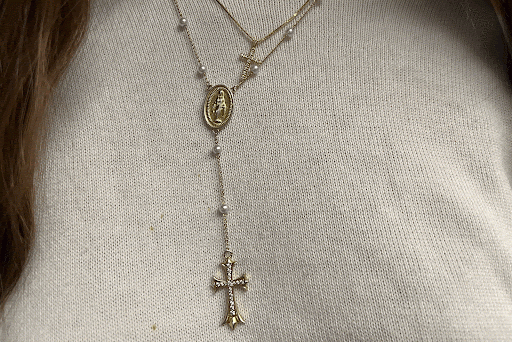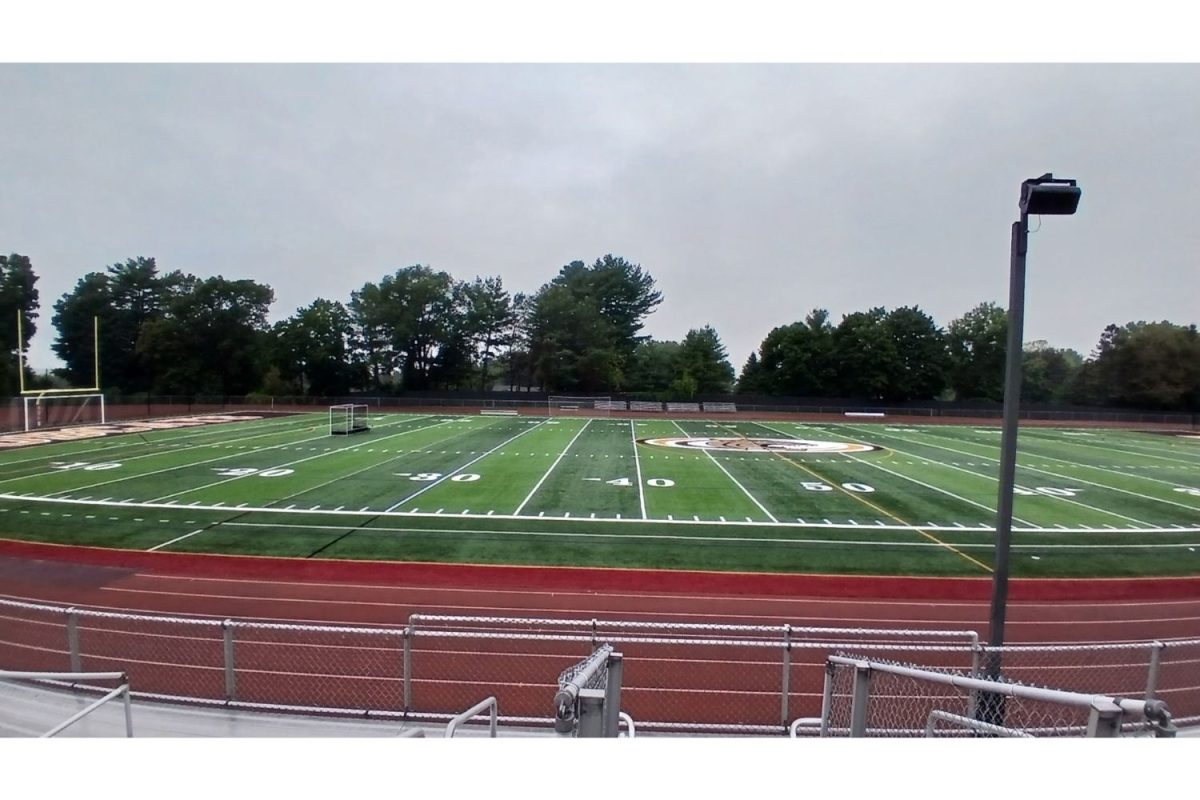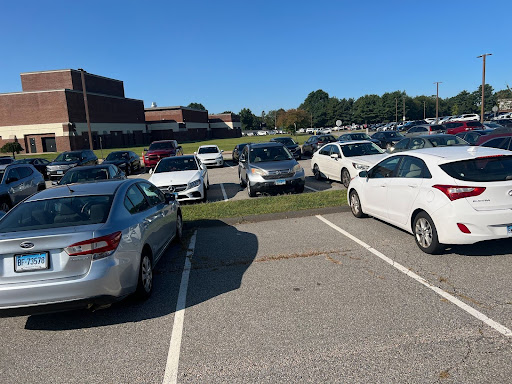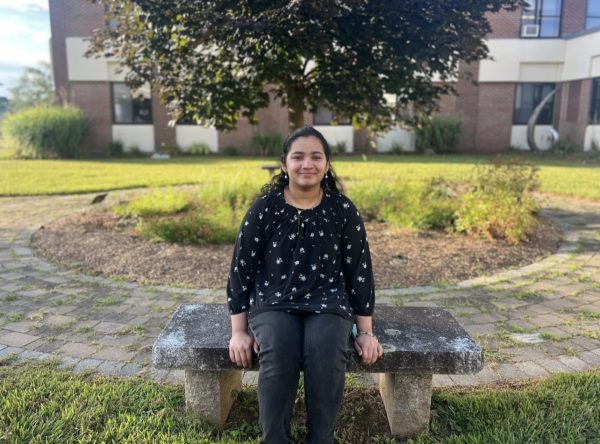
The life of a student is filled with academics, extracurriculars, clubs and other activities, but a question arises for those who practice religion, when do they find time to practice their faith? Where do they find time to pray, and how do they find balance?
Teaching between Worlds
Balancing personal faith with professional responsibilities can be complex in public education. Mr. Andrew Brindisi, an AP Statistics teacher at South Windsor High School who identifies himself as a Christian believes that teaching is about values.
“Sometimes it can be difficult. The values that I try to live by as a practicing Christian are hopefully demonstrated in how I treat my students. I believe in fairness and guiding people in the right paths and separation of church and state,” Brindisi said.
While the idea of separation of church and state has prevented the creation of theocracy in America, the effect could cause more harm than intended in certain circumstances.
“Because the Constitution promotes the separation of church and state, some young people may feel embarrassed or ‘not cool’ to speak about religious values and morals,” Rev. Edward Moran, a senior priest at Saint Teresa of Calcutta Parish, in Manchester explained.
According to Fr. Joseph Pullikattil, a priest at the St. Thomas Syro Malabar Catholic Church in West Hartford, “school is not separate from faith, it’s a mission field, a growth space, and a training ground. Christian students and teachers are called to be the light in their environments, not perfectly, but faithfully.”
Christian teachers share their perspective of their involvement in their faith by using prayer and Christ as their guide. Especially within the frustrations of the general school environment, teachers turn to their faith for guidance to forgive behaviors or words that may have hurt them.
Many teachers have commented on the fact that they never had any issues with the alignment of their beliefs and education since they keep work and faith in separate conditions. But a question arises, does faith have to be compromised in such situations? There are times where individuals have support for the Christian faith such as participation in voluntary religious activities like prayer or Bible study, some teachers have expressed that there are situations where they do not feel supported in their faith.
Due to religious values, those who practice faith may wish to approach circumstances of conflict within the school environment from a different standpoint centered around their ideology. However, due to the differences between Christian and societal normalities, there is pressure of aligning with values that conflict with the Christian faith.
Testifying or Enduring?
“I feel that Christianity is not really represented in my school, since, while there is Christianity, and no one talks about it, no one has the interest to express themselves,” Timothy Edwards Middle School student Edwin Tony said. “There are many conversations at school, such as, ‘Hey are you coming to the soccer game today?’, but you never hear the ‘Hey, are you guys coming for mass?’”.
This lack of representation, even from the perspective of a middle school student, can impact the future of that student, who has a seed of faith but is not given the environment to grow that into something.
“In our school system, we promote LGBTQ; we promote other ethnic groups like Muslims, Hindus, and other religions, yet Christianity is left out. This affects how Christians and Catholics are viewed,” high school student Zachary Smith told The Prowl. This lack of representation leaves room for misconceptions about the ideologies and the faith itself.
“We live in a post-Christian society, ie, a society that sees Christianity as too restrictive and old-fashioned,” commented Father Moran. “Trying to find common ground does not mean abandoning one’s faith. In our society today, it is a common mistake to judge others rather than to promote unity, kindness, and peace.”
Society then holds these misconceptions of the faith against the person, and rather makes them question their own faith because of the pressure that is put onto them. This can be seen slightly as a persecution, yet unlike the persecutions that happen in foreign countries for one’s faith, these are persecutions that are silently held in the heart of a Christian.
Living the Faith
“Balancing faith with school can be challenging, especially during stressful times, but I try to stay connected by taking quiet moments to pray or reflect,” high school student Abigail Ambooken said.
One of the biggest issues Christians face is the unification between their life at school versus the faith that they believe in. Balancing all the different parts that make up life as a student can be challenging, and integrating them smoothly into daily life is often difficult. “During English and social studies, we talk alot about ‘which side is better’ having liberal teachers doesn’t exactly help out with that notion of Christian Faith,” Smith explained. “I also believe that outside of those classes there is a ton that I grow throughout the day in my faith, even in those classes fighting for what you believe is something that God calls you to do.”
The differences in opinion between teachers who do not believe in the Christian faith versus the ones who do are quite different, especially on certain social issues. While this may be frustrating at times, it allows students to take a stand on what they believe in.
Christian students, during these times of struggle, should try to lean on their faith such as finding friends who share the same faith or joining a church youth group.
“My church plays a big role in my life. It reminds me to stay grounded, be kind to others, and not focus only on myself,”Ambooken said.
These different types of foundations of faith should be encouraged and should not be seen as a conservative ideology but rather a place of peace, rest and comfort for the students who depend on their religion.
Looking Ahead: Strengthening Faith in Today’s World
Understanding the role of church is vital in a student’s journey with their faith.
“Building and supporting the Youth Ministry must become a priority,” Fr. Moran said. “Creating places and opportunities for young people to gather together, and to enjoy each other’s company.”
These types of communities are what the society of young people need today, to know that there are people around them who are willing to support and help them in their journey in faith.
The church should continue to “host relevant talks and discussions on current school and cultural issues,” Fr. Pullikattil said.
These types of conversations allow there to be awareness on what to do in situations of frustration and differences between the faith and the rest of society.
To keep Christianity relevant and positive today there needs to be an involvement of young people in social justice endeavors such as visiting convalescent homes, helping out at food banks and having involvement in the community.
One of the biggest Christian values, especially one that the Catholic church emphasizes, is social services, including education and healthcare. These values are extremely important not only to the faithful, but also to the rest of the society.
On a personal level, though, there is so much that can be done to encourage young people.
“Giving young people a solid understanding of how to read and study the Bible. Supporting and reaching out to young people who feel abandoned and not understood. Really listening to their needs and their struggles. Not preaching to young people, but journeying with them as they move through their high school years,” Fr. Moran said.
This constant feeling of knowing that someone is with you and taking care of you is something that you can get from faith. Having a community, and feeling that care, is something that individuals need in their community today.










